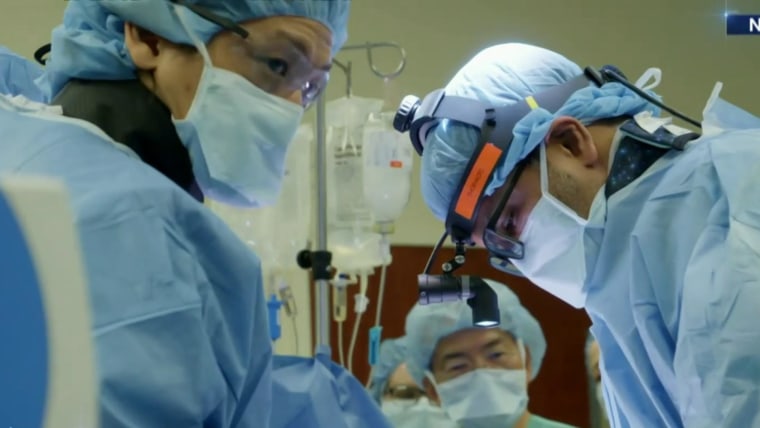Several major players in the global race for a coronavirus vaccine took steps to move their research forward this week.
Pharmaceutical companies developing potential vaccines, including Moderna and Johnson & Johnson, announced start times for various phases of clinical trials in humans. In addition, a U.S. Army lab announced the selection of a lead vaccine candidate, along with two backups that they plan to pursue.
Full coverage of the coronavirus outbreak
While most researchers are looking forward to new therapeutics, others are considering old vaccines to provide a temporary boost.
Here’s a roundup of the most notable vaccine news of the week.
Pharma companies announce plans to advance trials
Moderna, a Cambridge, Massachusetts-based biotech company, said Friday that it plans to start its phase III trial in July. The trial, the last step needed to determine whether a vaccine is effective at preventing coronavirus, will include 30,000 volunteers. Moderna was the first company to start coronavirus vaccine trials in humans, giving the first dose of their experimental vaccine on March 16. Moderna initially tested several different doses of the vaccine in volunteers, but will use a 100 microgram dose in the final trial.
On Thursday, Johnson & Johnson, which is also working on a vaccine, announced that it expects to start its human trials in July, after initially planning a September start date.
Pentagon picks vaccine candidates
The Defense Department’s largest biomedical research lab, the Walter Reed Army Institute of Research, selected a vaccine candidate for further study, and aims to start trials in humans later this year. The vaccine candidate was chosen from more than two dozen prototypes that were tested in preclinical studies. The top pick was the one that elicited the most promising antibody response. The Defense Department also selected two backup candidates.
Could the polio vaccine offer temporary protection?
Scientists from the Global Virus Network, an international coalition of virologists aimed at preventing and eradicating viral diseases, argued in a perspective piece published Thursday in Science that the oral polio vaccine could potentially provide a temporary immune system boost, which could help protect against the coronavirus until a vaccine is available.
The idea, which hasn’t been tested in clinical trials, is that the live vaccine could stimulate the immune system, allowing it to fight viruses that it wasn’t designed to protect against, Dr. Konstantin Chumakov, a member of the Global Virus Network, told NBC News.
Chumakov and co-authors of the Science piece are calling for funding and approval to start clinical trials to test this hypothesis.
Follow NBC HEALTH on Twitter & Facebook.














